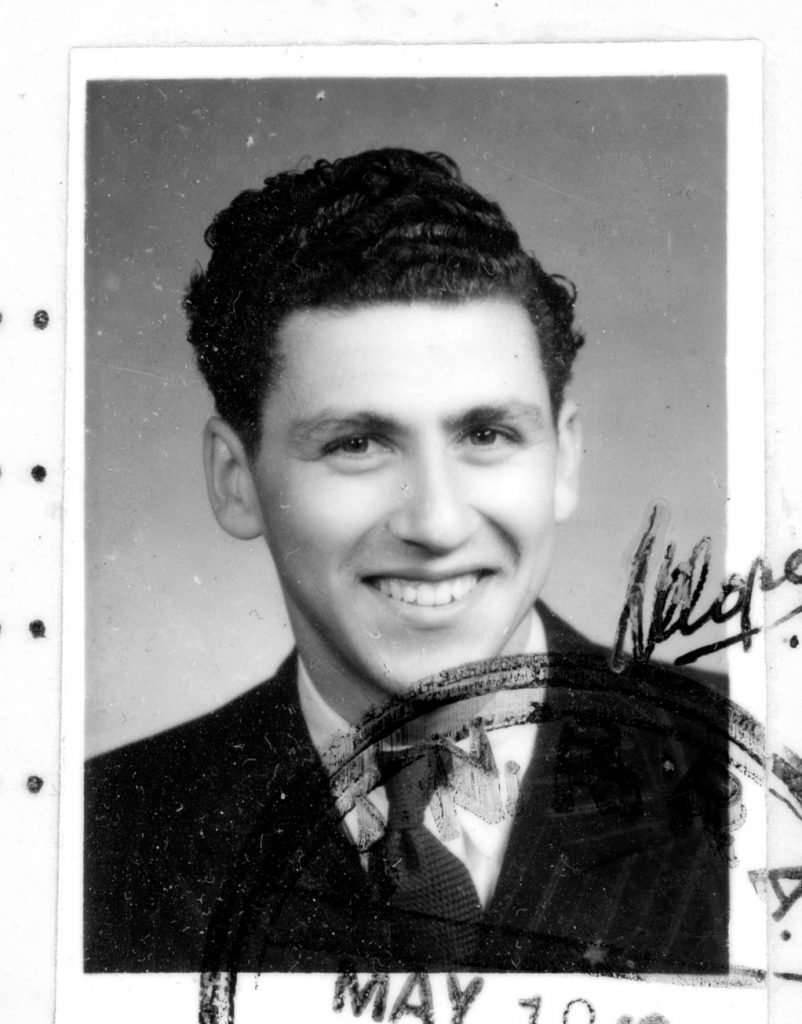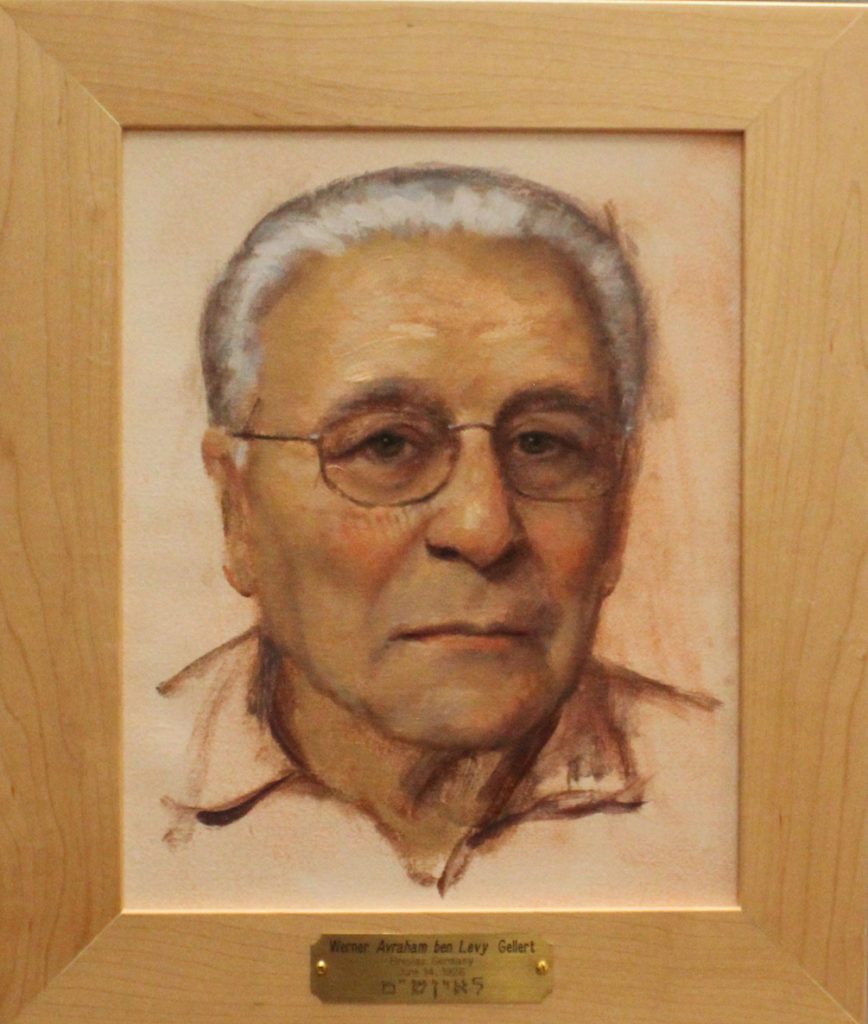Werner Gellert
June 14, 1926 ~ November 9, 2019
An unstoppable desire to educate
Written by Jonathan Wright

Werner Gellert’s message has always been simple: eliminate hate. He shared this message in classrooms and the museum and is remembered as an educator by everyone he met.
His desire was to alert students and adults alike about the viciousness of hate and the significance of acceptance. This desire was clearest when he talked to school groups or museum visitors about intolerance and animosity through his own life experiences and events from around the world.
Escaping the Nazis
The family in Breslau, Germany, that Werner was born into was unable to raise him in the difficult years after hyperinflation during the early 1920s. He was adopted by the Gellerts. After experiencing the intense episode of Nazi violence against the German Jewish population, Kristallnacht (Night of Broken Glass) in 1938, Werner and his parents fled Germany to one of the last cities in the world that accepted Jewish refugees: Shanghai, China.
Shanghai
Still yet to escape persecution for his faith, Werner was one of 18,000 Jews in Shanghai to be forcibly moved to the Restricted Zone or Hongkou ghetto zone of Shanghai. The conditions were extremely bad in this area with starvation and diseases such as yellow fever common. However, he found work for the U.S. Army as a typewriter repairman. His language skills with the Shanghai dialect of Wu Chinese and his familiarity with the area helped him to work as an intelligence agent and civilian consultant.
United States
He did not manage to return to Shanghai after leaving during the Chinese Cultural Revolutions, but ended up settling in Denver,
Colorado. After attending Denver University, where he met his future wife Frances Silverman, and Hebrew University in Los Angeles, Werner became an honorary rabbi in the Jewish Home for the Aged in Reseda, California and, later, at Temple Albert in Albuquerque. After a career in banking, Gellert retired in Albuquerque and co-founded the New Mexico Holocaust and Intolerance Museum and Study Center in 1998. The museum opened to the public in 2001.
New Mexico Holocaust & Intolerance Museum and Message
Contrary to common reactions to hate and intolerance – fear, depression, more hate, revenge – Gellert and his wife chose to use their experiences as a means for education and motivation. The museum they founded stands today as the New Mexico Holocaust & Intolerance Museum and its Gellert Center for Education. This museum highlights the importance of education by examining the ways in which people are targeted for their cultural, racial, gender, sexual or religious identities. One of Gellert’s famous mantras was: “Education is the only way to stop discrimination.” The museum educates people about the Holocaust and other genocides and hate that have affected people around the world.
“We learned language, history…now we have to teach.”
Werner Gellert, Albuquerque Tribune, 2001

